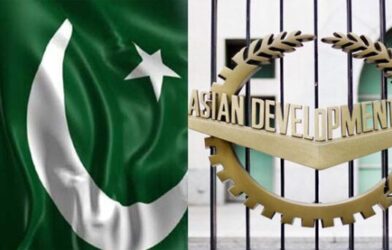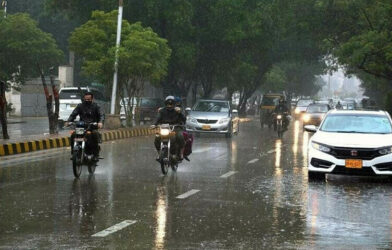Introduction
In a sweeping move to tackle water scarcity and enforce environmental compliance, Rawalpindi’s Environmental Protection Department (EPD) has issued notices to 465 car wash stations, mandating the installation of water recycling systems by February 28, 2024. The directive, part of Punjab’s broader water conservation strategy, has sparked backlash from business owners who argue the high costs could shutter livelihoods. With tensions rising between regulatory urgency and economic survival, the debate highlights the challenges of balancing ecological responsibility with small-business viability.
Key Details of the EPD Directive
- Scope of the Order:
- All 465 car washes in Rawalpindi must install water recycling and filtration systems to reduce groundwater consumption.
- Non-compliance could result in fines up to PKR 500,000, license cancellations, or legal action.
- Why Water Recycling?
- Water Crisis: Punjab faces acute groundwater depletion, with water tables dropping 1 meter annually. Car washes are major culprits, using ~10,000 liters daily per station.
- Legal Mandate: The order aligns with the Punjab Environmental Protection Act 2023, which targets high-water-use industries.
- Cost Burden:
- Basic recycling systems cost PKR 1.5–2 million, a steep sum for small businesses.
- Owners argue the 45-day deadline is unrealistic without financial aid.
Owners’ Demands: Interest-Free Loans and Subsidies
- Loan Requests: The All Pakistan Car Wash Association (APCWA) has petitioned the government for interest-free loans to cover installation costs, repayable over 3–5 years.
- Subsidy Proposals: Requests include tax breaks on imported recycling equipment and utility bill discounts for compliant businesses.
- Deadline Extension: Many seek a 6-month grace period, citing supply-chain delays and technical training needs.
Stakeholder Reactions
- EPD’s Stance:
- Director EPD Punjab: “Water conservation can’t wait. This is a non-negotiable step toward climate resilience.”
- The department plans workshops to guide owners on system procurement and installation.
- Business Owners:
- Ali Raza (Car Wash Owner, Saddar): “We support sustainability, but how do they expect us to afford this overnight?”
- Many warn of layoffs or closures if forced to comply without aid.
- Environmental Experts:
- Dr. Hina Aslam (Water Resource Economist): “Recycling systems cut water use by 70%, but the state must share the financial burden to ensure compliance.”
Global Precedents and Local Solutions
- International Models:
- California, USA: Offers rebates up to $50,000 for car washes adopting water-efficient tech.
- Dubai, UAE: Mandates recycling systems with phased deadlines and subsidized loans.
- Local Proposals:
- Public-Private Partnerships (PPPs): Link car washes with green tech firms for discounted equipment.
- Microfinance Schemes: Banks like NRSP and Akhuwat could offer low-interest loans under climate initiatives.
Challenges Ahead
- Implementation Hurdles:
- Limited local suppliers of recycling systems; reliance on imported machinery risks delays.
- Training staff to operate and maintain advanced systems.
- Enforcement Capacity:
- EPD’s limited staff and resources to monitor 465 stations post-deadline.
- Equity Concerns:
- Smaller, informal car washes lack access to capital, widening the gap between established and marginal businesses.

The Bigger Picture: Water Crisis in Punjab
- Depleting Reserves: Punjab’s groundwater meets 70% of agricultural and urban needs but is being drained faster than recharge rates.
- Climate Pressures: Erratic monsoons and rising temperatures exacerbate scarcity, with Lahore and Rawalpindi labeled “water-stressed” by the World Bank.
- Broader Reforms: The EPD’s crackdown follows similar actions against industries (textiles, tanneries) and agricultural over-pumping.
What’s Next?
- Government Response: Punjab’s Finance Ministry is reviewing loan requests, with a decision expected by January 15.
- Protests: APCWA threatens citywide strikes if demands are ignored.
- NGO Involvement: Groups like WWF-Pakistan propose crowdfunding campaigns to support small businesses.
Conclusion: A Test of Climate Justice
The EPD’s mandate is a critical step toward water sustainability, but its success hinges on equitable solutions. Forcing cash-strapped businesses to bear the full cost risks economic fallout and non-compliance. By pairing regulation with financial support—loans, subsidies, or grants—Pakistan can model a just transition to green practices, proving environmental stewardship and economic fairness need not clash.
ScaleUpPakistan.com Insight
Innovative financing mechanisms, like green bonds or climate grants, could bridge the gap. Empowering small businesses with affordable tech access is key to achieving Pakistan’s Sustainable Development Goals (SDGs).
Stay informed with ScaleUpPakistan.com—where policy meets practical solutions.
















